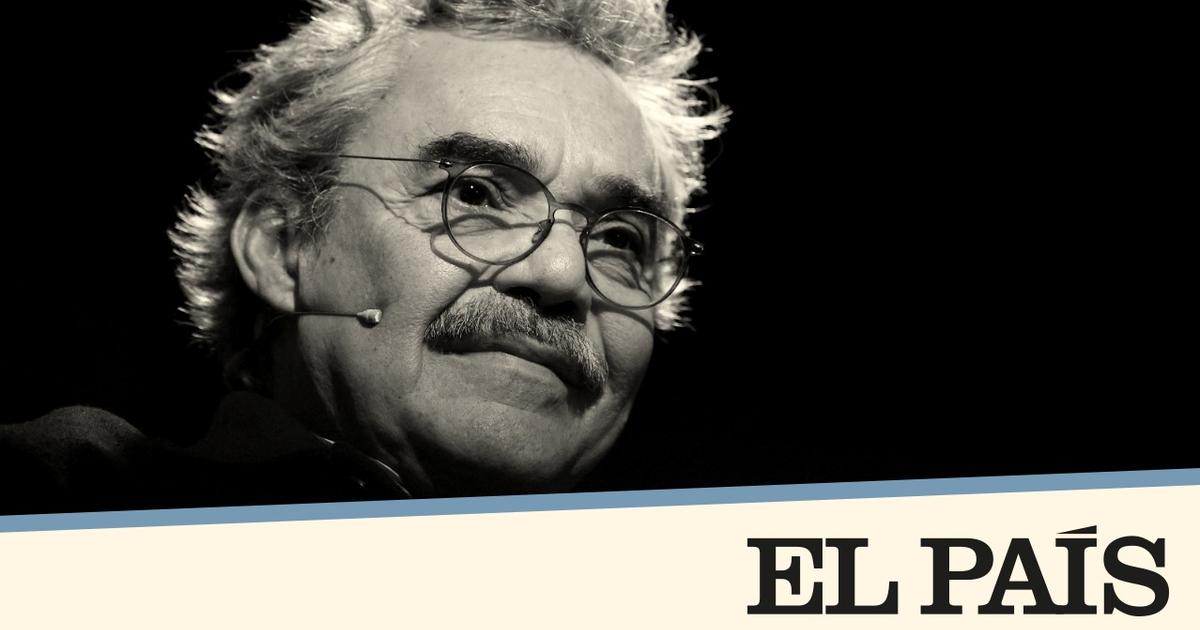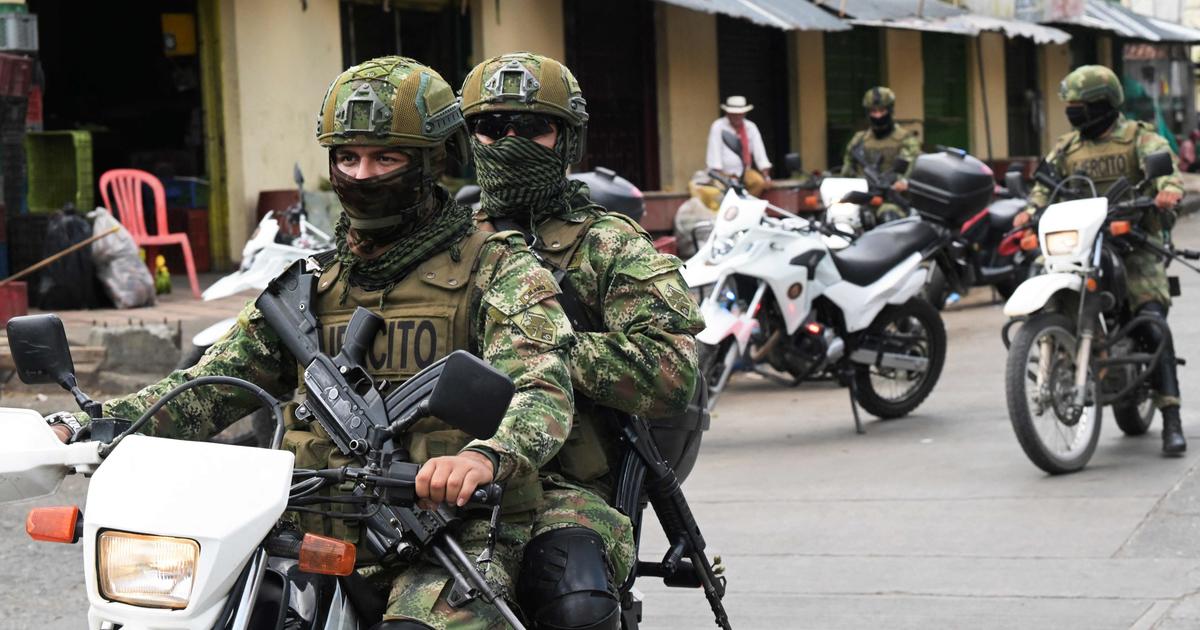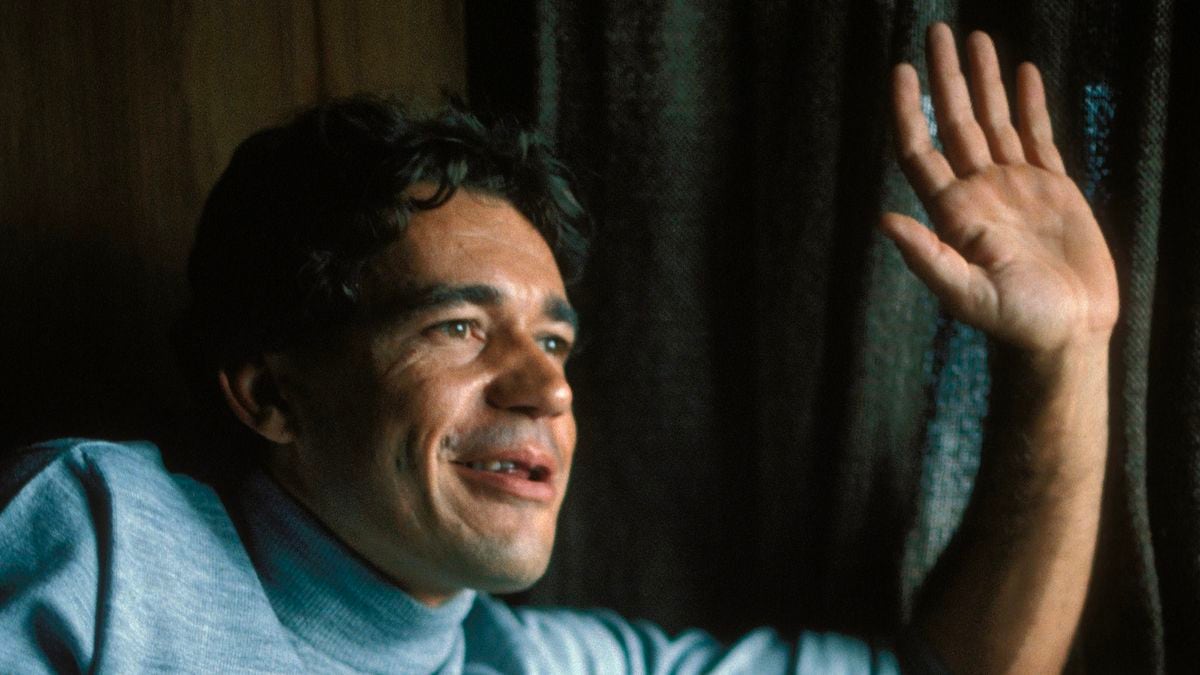Pablo Escobar brought Colombia to its knees with his war cry: "I prefer a tomb in Colombia than a prison in the United States."
In an attempt to prevent his imminent extradition, in 1990 he kidnapped ten important personalities, most of them journalists.
About this event, Gabriel García Márquez wrote
Noticia de un kidnapping
, whose adaptation into a television series has just been released on Prime Video.
News of a kidnapping
unites the two names of Colombians —antagonistic to each other— that arouse the most interest in the world: Gabriel García Márquez, one of the most outstanding writers of universal literature, and Pablo Escobar, perhaps the most famous and ruthless drug trafficker in the world. all the times.
However, the series is not about Escobar, but about the victims of the multiple kidnapping ordered by him.
In the 1980s and early 1990s, the country—one of the most violent in the world—was terrorized by the Medellín Cartel, led by Escobar.
In his war against the state, he assassinated politicians, journalists, judges, police officers, and presidential candidate Luis Carlos Galán.
He ordered car bombs to explode, blew up a plane in flight with more than a hundred passengers on board, dynamited the headquarters of the newspaper
El Espectador
and the building of the Administrative Department of Security (the already dismantled DAS, the secret police).
Escobar's victims number in the thousands.
Thus, Escobar got the Constitution promulgated in 1991 to abolish extradition.
The same day that the corresponding article was approved, he turned himself in to the Colombian justice system, which yielded to his condition that he go to a prison that he himself had adapted and owned by him: La Catedral.
Located on a mountain on the outskirts of Medellín, it was a prison mansion with luxurious rooms, Jacuzzis, soccer fields and billiard rooms.
There he threw parties attended by drug traffickers, politicians, beauty queens, soccer players and singers.
He even had his accomplices, Gerardo Moncada and Fernando Galeano, whom he murdered, brought to him.
The alleged incarceration only served to keep him safe from his main enemy, the Cali Cartel, as he continued to run his business.
Due to pressure from the United States,
the Colombian government organized a plan to change his prison and Escobar escaped through one of the escape routes that he had ready.
He was persecuted for a year and a half by the Search Bloc —formed for this task—, until they killed him on a roof in Medellín on December 2, 1993.
"I believe that, like Escobar, there was no Colombian in the history of Colombia who has conditioned the life of the country more at a given moment," García Márquez said in an interview he gave to journalist Roberto Pombo in 1996, when he published the book.
In the development of his war against Colombia, Escobar and his group "Los extraditables" committed several kidnappings of notable figures in 1990. The first was that of journalist Diana Turbay, daughter of former president Julio César Turbay.
In August 1990, Diana traveled from Bogotá to Medellín, along with other journalists, supposedly to interview Manuel Pérez, the Spanish priest who commanded the National Liberation Army (ELN) guerrillas.
He was a trap.
Five months later, in January 1991, she was murdered in a confused rescue attempt by the Public Force.
That kidnapping was followed by that of Maruja Pachón, director of the state-run National Film Fund and sister-in-law of Luis Carlos Galán, the murdered presidential candidate.
Pachón was the wife of Alberto Villamizar, a representative to the Chamber who promoted the extradition in Congress.
Beatriz Villamizar, Pachón's sister-in-law, was kidnapped the same night.
The Extraditables also held hostage Francisco Santos Calderón, editor-in-chief of the newspaper
El Tiempo
;
and Marina Montoya, sister of the former secretary of the presidency Germán Montoya, murdered in captivity.
In the kidnapping operations, several of the journalists' drivers were murdered.
The investigation and writing process of
News of a kidnapping
was a titanic task for the Nobel Prize for Literature.
He interviewed more than fifty people and it took him more than three years.
In the end he made a detailed account, not only of the kidnapped but of the life of the kidnappers.
“It was not a report that he did as in the days of yore, because he was so famous that wherever he went what he was covering stopped being news to become news himself, so he needed two assistants.
It was a somewhat secret investigation”, explains Orlando Oliveros, cultural journalist and writer.
In his obsession with details, García Márquez came to consult Escobar's birth chart, Oliveros recounts in the book
The Memory Machine
, edited by the Gabo Foundation.
From hiding, Escobar found out about the book he was writing and García Márquez had the intention of showing him the first draft, but when it was ready, the drug trafficker had already been killed.
“It is one of the most fatiguing books that García Márquez wrote.
In the end, he felt like he was in a
boxing
ring , because he had to organize too much data and give it a narrative meaning”, concludes Oliveros.
***
Still from 'Noticia de un kidnapping', based on the book by Gabriel García Márquez.Prime Video
It is night.
A moving camera shows a car chase.
Another, the close-ups of the drivers at the wheel and the victims.
A tense music
in crescendo
mixes with the sound of engine brakes and breaking glass.
Shots, shouts and snorts of the characters.
The distressing scene is from the first of the kidnappings recounted in the series: that of Maruja Pachón and Beatriz Villamizar.
All the actors and actresses are Colombian.
Pachón is played by the renowned actress Cristina Umaña (
I love Paquita Gallego
,
The Lady of Troy
, among others).
In her first biographical role, Cristina worked hand in hand with Maruja to prepare her character.
“She gave me an inevitable sadness, I cried suddenly to think about the scenes.
The one with the rescue was very difficult for me to film, because it took many hours.
The conditions were extreme: there was rain, very cold and fog;
it was in a wasteland.
There was significant emotional exhaustion and that emotion had to be sustained over time, at all levels”, says Umaña.
Pachón, now 84 years old, answered EL PAÍS by phone and recalled his kidnapping: “It was seven months in a dark room, small, always in danger of death.
We were five people: three hostages and two guards.
There can be nothing more terrible or more dramatic than what happened to me, not only to me, but to all Colombians."
At first, García Márquez was only going to tell the story of Maruja and Villamizar's efforts to secure his release, but he realized that it was impossible.
"There were not ten different kidnappings — as it seemed to us at first glance — but a single collective kidnapping of ten people (...) and carried out by the same company with the same and sole purpose," he wrote in the book's prologue.
The six-episode series narrates the anxiety experienced by the hostages and the attempts of the families to rescue them.
It just premiered on Prime Video and can be seen in 240 countries.
It is directed by the Chilean Andrés Wood (director of
Machuca
y
Violeta went to heaven
and winner, among other awards, of the Goya for
The Good Life,
in 2009).
The filmmaker Rodrigo García Barcha, son of the Nobel, is a screenwriter and co-producer, and he was the one who invited Wood a few years ago to be part of the project.
“I was already familiar with the play and always found it very attractive to bring to the screen,” says Wood, also a co-writer on the series.
Wood had only worked on Chilean projects and adapting a work by García Márquez seemed like a monumental challenge.
“Rodrigo was saying what could and what could not be done;
the only limit was not to frivolize, nor to fall into drug-
pornography
as a concept and, above all, to respect the victims and their families”.
In 2021 Wood spent five months in Colombia.
The scenes were filmed in Bogotá and its surroundings with strict security controls due to the pandemic.
Although
News of a kidnapping
is a play about a Colombian event, it was made with special care to captivate other audiences.
As it is an adaptation, some parts are fictional, but in its essence it is faithful to what happened.
“Working with a work by García Márquez was like an oracle, because many times we had questions about the characters and the situations, and just going back to the book, I realized that many of the answers were there,” explains Wood.
Juan Pablo Raba plays Villamizar, Pachón's husband.
He had already acted in the series
Narcos
, about Escobar.
"There is a greater weight on the shoulders to be involved in a García Márquez project," he comments in a phone call with EL PAÍS.
“Emotionally, that helped me because covid is a kind of kidnapping, because we were all imprisoned in a certain way,” he says.
The construction and approach to his character was done through Andrés Villamizar, Alberto's son, who died in 2007. “Something curious happened to me with this project: I had a hard time defining the life
of my normal life on
set .
My character represented that Colombia that wanted to do something to change reality, the Colombia that does not give up”, explains Raba.
Before Maruja's kidnapping, in 1986 Alberto had suffered an attack by hit men from which he emerged unharmed.
“My dad's car received about twenty bullet holes;
unbelievably none hit him, but we had to go into exile.
The version that they show in the series is very romanticized because the attack was leaving the house, and not with my mother present;
It was day, not night.
They make some changes, but I understand that they are part of the license”, says Andrés.
In his preparatory conversations with Raba, he detailed the actor's gestures, body language and even the way his father lit the cigarette.
"It was an emotional and sad experience, but when I saw Juan Pablo transformed into my dad, it was moving."
From the interpretation that Umaña made, Andrés also considers that he captured the essence of his mother.
***
The series 'News of a kidnapping' premiered on August 11 on the streaming platform Prime Video.Prime Video
María Carolina Hoyos swore, before the corpse of her mother — journalist Diana Turbay — that she would never smile again.
She was 18 years old and had spent the most harrowing months of her life, not knowing anything about her mother.
“She was kidnapped, but so was the family.
I suffered a kidnapping in freedom, which is worse than anything, ”she says.
She felt that her life was over.
She did not want to smile because she wanted to sympathize with the pain of Diana Turbay, murdered at the age of 40.
“I was seeing my mom lying on an operating table after long months of not seeing her, after I had prayed and begged that this would not happen,” she says.
Hoyos wrote the book
From the bottom of the sea
about her tragedy and how she found the strength to overcome it.
In 2015, the confessed hitman Jhon Jairo Velásquez, alias Popeye, apologized for the kidnapping and murder of her mother.
The role of María Carolina is played in the series by Ilenia Antonini, that of her mother by Majida Issa, and that of her grandmother, Nydia Quintero, by Constanza Duque.
Julieth Restrepo personifies Beatriz Villamizar, another of the kidnapped women.
Paradoxically, in 2017 she played Escobar's wife in the movie
Loving Pablo
.
“Playing Beatriz has been one of the biggest challenges of my career.
Although as an actress one prepares for these situations, emotionally it was exhausting, because the emotions were very real and intense.
I feel that the series is a tribute to Beatriz and to all the victims”, explains Restrepo.
During the filming, Issa (actress of
Without breasts, there is paradise
or
La Guzmán
), realized that there is still an open wound in Colombia.
Although she put herself in Diana's shoes, she was afraid of falling short, not being able to convey the anguish and suffering.
But when she got to the
set
she realized that she didn't even have to invoke her feelings.
“Sometimes we had to tackle them.
The director told us: «Not so much, please», because it was impossible not to burst into tears, ”she says.
Issa did not create the character from the eyes of journalism or the archives, but from María Carolina.
“It was very sad to relive this story, not only for me, but also for the whole team.
I think we were indebted to tell it from the fairest point of view of all, which is that of the victims”, explains Majida.
For María Carolina, watching the series is revisiting grief.
"It is important that the new generations know the effects of drug trafficking on society and all the pain it has brought to thousands of families," she concludes.
Subscribe here
to the EL PAÍS newsletter on Colombia and receive all the key information on the country's current affairs.



/cloudfront-eu-central-1.images.arcpublishing.com/prisa/N2CBAPWTK5AYRIQDVR3SFGIKVM)




